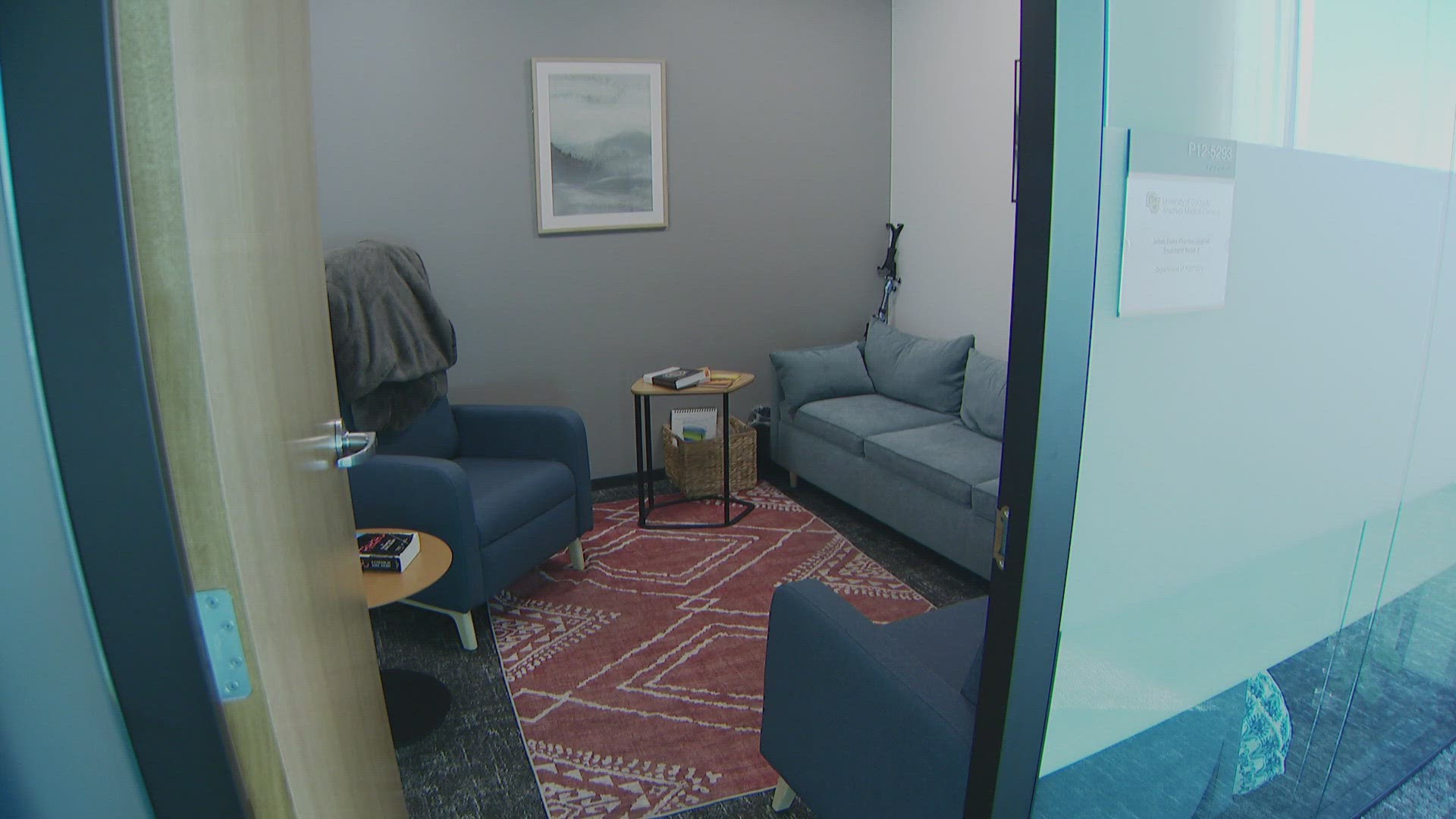DENVER — A first-of-its-kind study in Colorado is set to launch in February to test if psychedelics can help people cope with depression.
Researchers at CU Anschutz will test whether psilocybin — the chemical compound that produces psychedelic effects in “magic mushrooms” — can be a possible treatment.
Experts who care for people with mental health challenges have not had any new treatments for decades, and they said traditional antidepressant medications don't work for as many as one-third of people.
"It started to become obvious that psychedelics were going to become a part of psychiatry," said Dr. Andy Novick, an assistant professor at CU Anschutz.
Soon, patients at CU Anschutz will take doses of psilocybin in a therapy room to see if it can help treat their depression.
"One of the biggest outcomes we are looking for in this trial is to what extent does psilocybin affect this symptom of depression called anhedonia," he said.
Novick wants to know if the psychedelic can help someone get excited about things.
"This symptom of depression is extraordinarily difficult to treat," Novick said. "Our conventional antidepressants don't do a great job of treating it."
The hope of using drugs like psilocybin is that a single dose can create an immediate therapeutic benefit.
Researchers elsewhere have found a single dose of psilocybin may help people with depression for as long as a year.
"For a long, long time we have been using the medications we have for 50-plus years," said Dr. Scott Thompson, who joined the project with Novick. "Things are really starting to change and psychedelic medicine is really at the forefront of those changes."
This trial includes 40 patients. With the help of facilitators, they will take a dose in a room and then wait it out.
"The effects of psilocybin last for about eight hours, so you will be with us in the clinic," Thompson said.
What they're really interested in learning is what happens to the brain after that eight-hour session.
"We are looking at their brain to see whether the regions of the brain that control motivation and pleasure are actually improved in function after psilocybin," Novick said.
This research is not related to Proposition 122, a ballot measure Colorado voters approved last fall that allows people to consume magic mushrooms at licensed healing centers starting in 2025.
Novick and Thompson hope their study will help people make informed decisions when that happens.
SUGGESTED VIDEOS: Mental Health & Wellness

